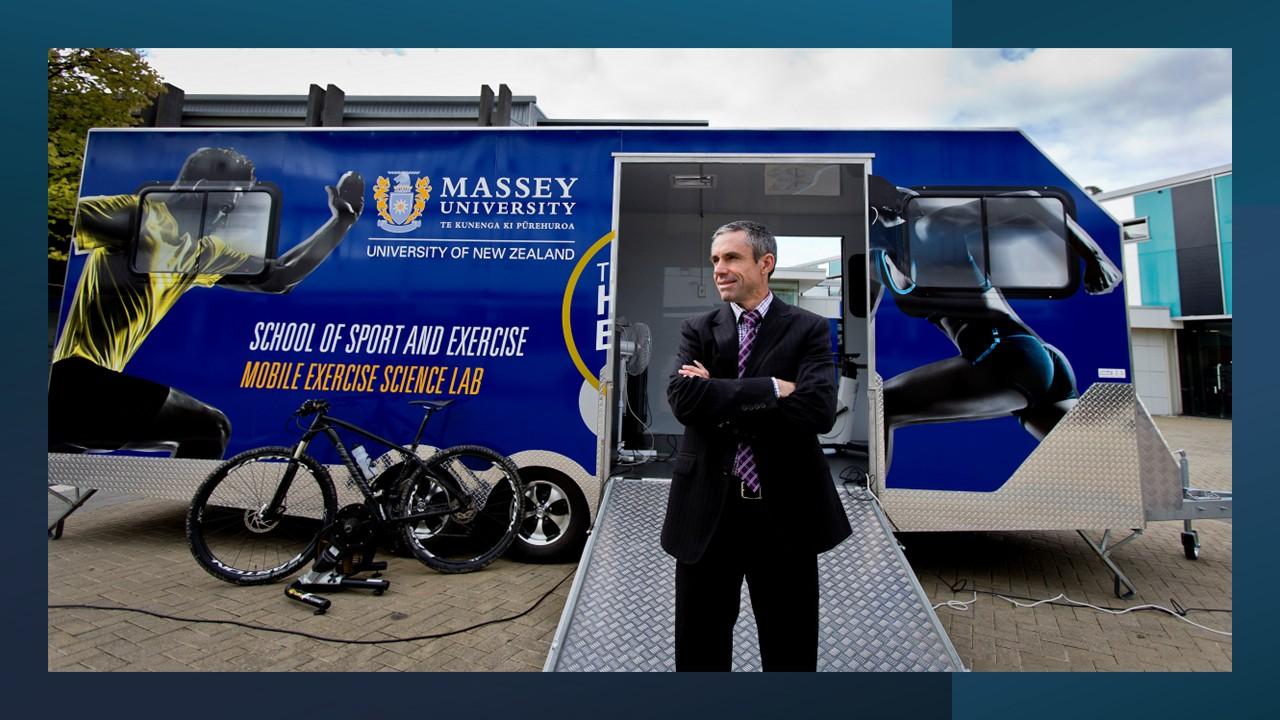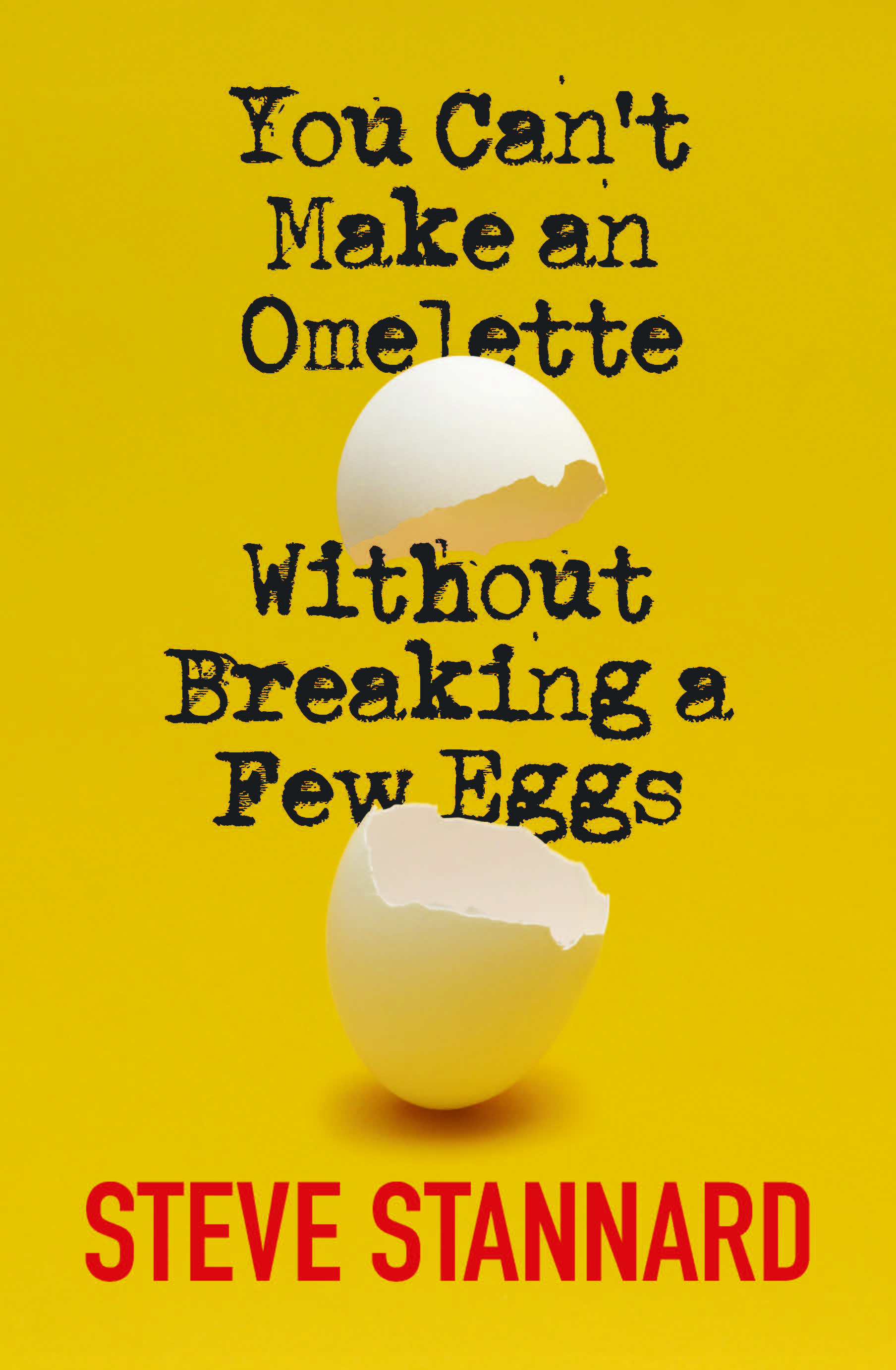When was the last time you heard a political or business leader on hearing a position or newly suggested policy by an “opposition” leader, say, “That sounds like a good idea. I fully support that. And I believe we can add even more value”? Nada? Never? Or so long ago you’ve forgotten? Me too!
In a newly published book by the late opionist, Steve Stannard, you’ll see some wonderful ways that we (and our leaders) can have reasoned, informed, accepting, and at appropriate times, humorous, ways of having collaborative rather than combative conversations about all the things that affect our daily lives.
Cycling doyen, sports scientist and lately barista, Steve succumbed to cancer on Saturday, 30th August 2025, aged just 58.
The book, “You Can’t Make an Omelette Without Breaking a Few Eggs” containing 50 of Steve’s published opinion pieces, was launched at his memorial on Friday 21st in Palmerston North, New Zealand. It’s a tribute to Steve and his contribution to his community, and indeed the wider society. As I commented when asked about the book recently, “Where we often see today’s leadership antagonistic and polarising, you’ll find Steve’s articles reflect his often ‘way out’, but always practical, advice on how to better live our lives in a collaborative rather than confrontational manner”.
With many firsts, such as women’s suffrage (1893) and more recently in Steve’s area of interest cycling, where he instigated equal prize money for women and men in the international Gravel and Tar cycling event, New Zealand has been seen as a leader in social awareness and justice. It would be wonderful to see another advancement in social collaboration if our world leaders took on some of the techniques, tips and advice covered in “You Can’t Make an Omelette Without Breaking a Few Eggs”.
The title comes from Steve’s love of chickens (which he often quoted) and is a centuries old way of saying, “If we question the current way of doing things (that maybe have got us nowhere, or perhaps down the wrong or dangerous path) in a collaborative way, we can take the good from the established and put it together with some new and make a better and far more palatable and flavoursome dish”.
The book covers many areas of interest to us all – community, business, decision making, education, politics, bureaucracy, health, environment, history, culture, self-image and positivity – all in short, engaging articles that will have you thinking, reflecting and maybe even acting in a way to improve ourselves and our communities.
As an author myself (and a part-time cyclist), I was always impressed with Steve’s ability to tell a good yarn that had a meaningful undertone of doing good. As an academic (he established the School of Sport Physiology at Massey University) I was always curious as to how he came by such skills. It took me a long while to form a two-part hypothesis.
Firstly, in the academic world where he published profusely with over 150 papers, which have in turn been cited over 6,000 times, in top-of-the-line publications, his need to have them all ‘peer reviewed’ served as a way of considering how to promote an opinion (always based on scientific evidence) in a way that could be accepted by others.
“Peer Review” is a term used in academia to obtain input, review or advice on a study or opinion and is considered the “gold standard”. Here, you’ll not find the words, “feedback” or even “comments”, which often flavour the opinion being put on the author’s work in a negative way or tone, never or rarely used. We can all probably relate to the time where a colleague has said (even with good intentions), “May I give you some feedback on … ?”. When hearing these words, we know that we need to ready ourselves for perhaps justifying our actions or positions. Boom – we’re already in combative mode!
So, the first point of my hypothesis is that every opinion Steve put, must be backed by evidence, or if not stated as such as “his experience” in a way that ensured the reader would reflect or contemplate the point being made in a considered manner.
Secondly, as a pro-am cyclist where he represented his country of birth, Australia, he learnt the unwritten law of the peloton – “To be successful, you must help your competitor”. It’s the only sport that I know of where this is so. For example, watching major cycling events such as Le Tour de France, it’s so evident when a small group break away from the peloton and although competing against one another, we see them helping one another to stand any chance of being on the podium.
For what it’s worth, there you have my hypothesis about the basis of his articles – they must be considered to be able to be peer reviewed (that’s you and I) and in a way that even those with a different opinion may consider working together to improve our society.
It’s been an honour to edit the book (which has probably been the easiest editing job I’ve ever had), and a privilege to be able to help get Steve’s great advice out to the world.
Enjoy a great read in “You Can’t Make an Omelette Without Breaking a Few Eggs”.


